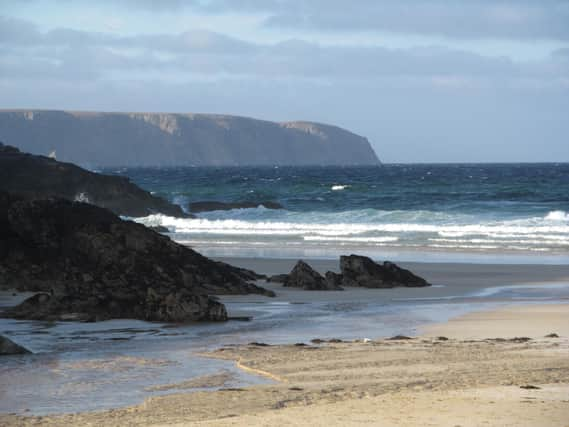New book revisits secret plague experiments on guinea pigs and monkeys off a Scottish island


Author Donald S Murray, who grew up on Lewis, recalls the "schoolboy gossip” surrounding Operation Cauldron, which unfolded off the north east coast of the island in 1952 as Britain’s interest biological warfare grew in the face of the Cold War.
During the operation, biological agent “bombs” were released into the air as caged guinea pigs – there were some 2,400 used in the experiments – were placed on deck to absorb the airborne diseases. Around 100 monkeys were also used in the tests.
Advertisement
Hide AdAdvertisement
Hide AdLocal fishermen were told to avoid the area as the covert testing got underway with the secretive nature of the trials off the coast at Tolsta – where a pontoon, a ship and a survey boat were moored – allowing for unchecked truths to percolate the island.
Murray’s novel book, In A Veil of Mist, uses the operation as a backdrop to a story which looks at hidden histories and the power of stories left untold.
Details of Operation Cauldron only really came to light in the 1980s when the Observer newspaper published the only file on the operation which had not been destroyed. Parliamentary questions had earlier been asked by former MP for the Western Isles, Donald Stewart.
But the seeds of the story had already long been planted in the mind of a young Murray, who stayed in a hostel in Stornoway during the week so he could attend the island’s prestigious secondary school, The Nicolson Institute, where he would later become a highly-respected English teacher.
Mr Murray said: “There would be stories at the back of the bus about the experiment...more myths and whispers than anything. There were a lot of half truths going around which would be impossible to prove now.
"Then later I read a story about someone who had been on the boat being involved in a breach of the peace in Stornoway. It reinforced those memories. It is fair to say that this book has been brewing in my head for a long time.”
After the animals had been exposed to diseases, they were taken back to the on-ship laboratory for assessment or post mortem, with those who died later burned.
A major panic erupted in government and naval offices after a Lancashire-based trawler sailed through a cloud of biological agent.
Advertisement
Hide AdAdvertisement
Hide AdAccording to accounts, the crew went back to shore as normal but were put under government surveillance for two weeks. The men remained unaware of what had happened until they were approached by a BBC crew decades later.
In A Veil of Mist revists an episode of island history where the core truth remains largely out of reach.
Mr Murray, now of Shetland, said : "I think we have to remember the context of the time . We would judge this behaviour very harshly but then you are talking about Hiroshima, Nagasaki...islanders may have perhaps knowingly turned their head away.
"You can take it out of all historic context and we think it is indefensible. But in the context of time, it was perhaps more understandable.”
In A Veil of Mist is published by Saraband on March 18.